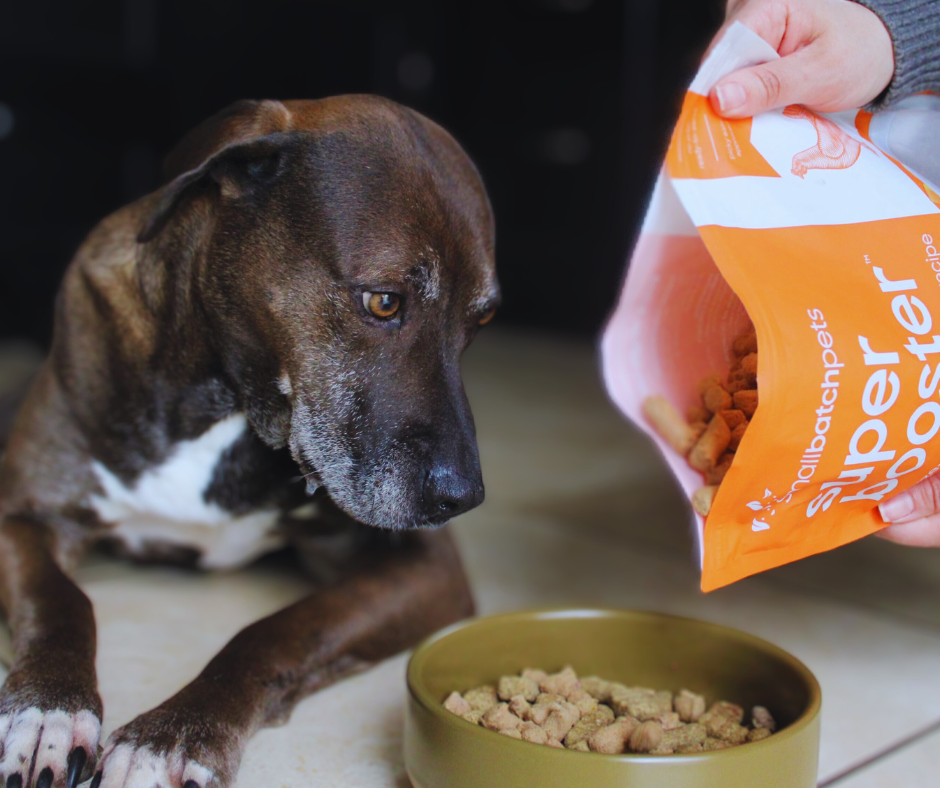Best Puppy Diet: Key to Long-Term Gut Health
Finnish researchers reveal how a puppy’s diet impacts long-term health.
Selecting the best diet for your dog goes beyond merely establishing a feeding routine. It’s about using nutrition to create a life of health, happiness, and longevity. Scientists from the DogRisk research group at the University of Helsinki recently gave dog owners critical new evidence that what we feed our puppies can dramatically affect them later in life.
What were the researchers looking for?
These researchers focused on the long-term effects of puppy and adolescent diets to shed light on how early dietary choices influence a dog’s future health¹. Their objective was to explore the connection between the food given to dogs during their puppyhood (2–6 months) and adolescence (6–18 months) and the occurrence of chronic enteropathies later in life.
Chronic enteropathies (CE) in dogs are ongoing digestive issues that persist for three weeks or more, even when typical culprits like parasites, bacterial infections, and cancer have been ruled out. CEs are like complex medical mysteries where the obvious reasons for the dog’s gastrointestinal issues have been excluded, highlighting the intricate relationship between diet and digestive health.
To get this data, researchers analyzed questionnaires received from several thousand Finnish companion dog owners about their pet’s diet at puppyhood, adolescence, and adulthood. The survey also included a range of questions about the dog’s phenotype, environment, health status, lifestyle and maternal data.
What the researchers found
The analysis revealed that feeding dogs a non-processed meat-based diet that included meal leftovers and table scraps to young dogs (2-18 months old), helped protect the dog from CE later in life.
Think of these meals as being as close as possible to what dogs naturally eat, like raw or gently cooked meats, raw soft bones, and bits of cartilage. These foods are nutrient-dense and full of vitamins, minerals, enzymes, and bacteria that can dramatically improve your dog’s gut and overall health.
The research also showed that feeding young dogs an ultra-processed diet high in carbohydrates, like dry dog food (kibble) and rawhides were significant risk factors for CE later in life.
What the research means for you
While we can’t change several factors, like genetics, that affect our dog’s health, we can modify their diet to improve wellness and longevity. Considering the study results, there are three main components that are recommended for inclusion in a young dog’s diet:
- Raw meats: Think of beef, chicken, lamb, or fish as the primary protein sources. Make sure whatever you choose is fresh and comes from a trustworthy place to keep any pathogens at bay.
- Raw bones and cartilage: Most dogs love to chew on these primal foods. In addition vital minerals and compounds like calcium, phosphorus, and glucosamine, bones help maintain cleaner teeth and improve oral health. They also provide hours of mental enrichment. To find out the safest way to add raw bones to your dog’s diet, check out our blog post Is It Safe To Feed Your Pet a Raw Meaty Bone?
- Veggies and fruits: Adding a small amount of lightly steamed or raw veggies and certain fruits to your dog’s bowl can boost their intake of vitamins, minerals, and fiber. To learn more about including these to your pet’s bowl, check out our tips here.
How to start improving your dog’s diet
When adding new foods to your dog’s bowl, our advice is to always take it slow and easy. Start with small amounts of fresh foods mixed with your dog’s kibble. Gradually increase the fresh food to kibble ratio over 2-3 weeks. This slow and steady approach gives your dog’s digestive system time to adapt to the new diet.
Understanding chronic enteropathies and their connection to diet is crucial for every dog owner. By recognizing the symptoms of CE and opting for a diet that leans towards non-processed or minimally processed meat-based foods, you’re taking significant steps towards safeguarding your young dog’s long-term health.
If you want help getting your pup’s nutrition dialed in, stop by the shop and let’s talk. Our team is ready to help you get started today so your dog can experience the vibrant health and vitality that a proper diet can bring to your dog.
*This article is for informational purposes only. It is not meant to provide medical advice or replace the advice of a qualified veterinarian.






